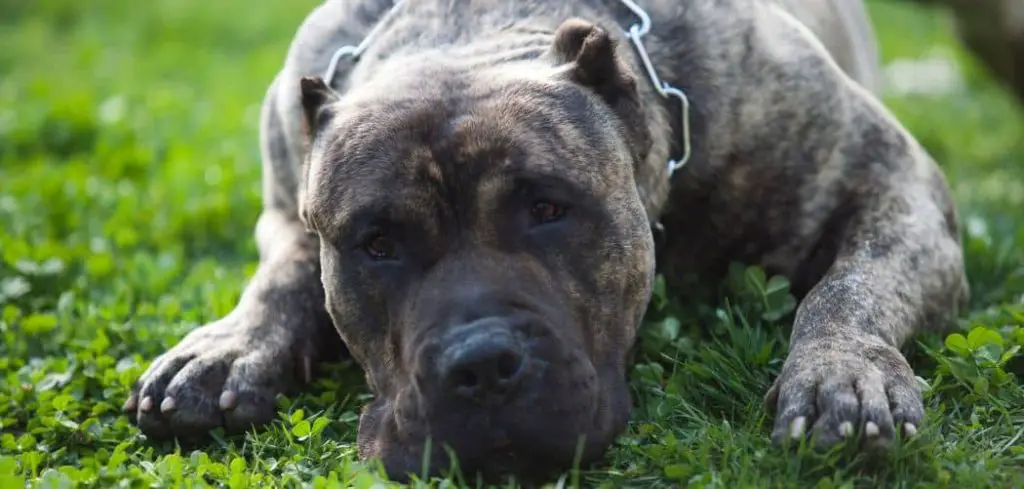If your dog is having loose stool but not diarrhea, it can leave you wondering what’s really going on. Loose stool may not seem as severe as watery diarrhea, but it’s still a signal that something isn’t right with your dog’s digestive system.
We outline the common reasons a dog may have loose stool but not full diarrhea, what you can do at home, and when to seek veterinary help.
Table of Contents
Dog Loose Stool But Not Diarrhea — Why It Happens
Loose stool in dogs without full-blown diarrhea often comes from mild digestive upset, dietary changes, stress, or underlying health issues. Unlike diarrhea, the stool usually has some form and isn’t entirely liquid, but it’s softer than normal. Dogs may experience this due to food intolerance, intestinal parasites, inflammatory bowel issues, or stress-related digestive changes.
It’s a sign that the gut is struggling to process food properly, and while it may not seem severe at first, it should not be ignored.

Dog Loose Stool But Not Diarrhea: Common Causes
Dietary Indiscretion
Dogs are notorious for eating things they shouldn’t, from table scraps to trash. When this happens, their digestive system may produce loose stools without progressing to full diarrhea.
Pet owners may notice soft, smelly stools that improve after the offending food passes. While it may resolve on its own, repeated episodes can cause irritation and require a vet’s advice.
Read more: Dog Loose Stool With Mucus (What it means)
Food Intolerance or Sensitivity
Some dogs don’t tolerate certain ingredients, such as dairy, wheat, or rich meats. This can lead to chronic loose stools but not watery diarrhea.
Signs may include gassiness, bloating, or recurring soft stools after eating certain foods. Identifying the trigger and switching to a gentle, hypoallergenic, or limited-ingredient diet often helps.
Intestinal Parasites
Parasites like Giardia or whipworms can cause soft stools that never seem quite normal. Unlike sudden diarrhea, this may appear as ongoing loose stool with occasional mucus.
Dogs may also show weight loss, lethargy, or increased appetite. Even if your dog is up to date on preventatives, parasites should always be ruled out with a stool test.
Stress and Anxiety
Stress can directly affect your dog’s gut health, leading to looser stools. Changes such as moving homes, boarding, or loud noises can trigger stress colitis, where the colon becomes inflamed.
Owners may notice softer stools during stressful events, sometimes accompanied by pacing, whining, or clinginess. While often temporary, it can become chronic if stressors persist.
Inflammatory Bowel Disease (IBD)
IBD is a chronic condition where the intestines remain inflamed, leading to persistent loose stools. This is different from occasional digestive upset and requires veterinary management.
Symptoms often include recurring loose stools, vomiting, weight loss, and decreased appetite. Dogs with IBD may require special diets and long-term medications to keep symptoms under control.
Pancreatic Issues
If the pancreas doesn’t produce enough digestive enzymes, food won’t break down properly, leading to loose stools. Exocrine pancreatic insufficiency (EPI) is one such condition.
Owners may notice pale, greasy, or bulky stools along with weight loss despite a strong appetite. This is a serious condition requiring lifelong enzyme supplements and veterinary care.
What to Do If Your Dog Has Loose Stool But Not Diarrhea
If your dog’s loose stool is mild and your pet is otherwise acting normally, you can try simple home care first. Feeding a bland diet of boiled chicken and rice for a few days often helps settle the stomach.
Make sure your dog stays well-hydrated, since even loose stools can lead to fluid loss. Avoid treats, table scraps, or sudden diet changes during this time.
Adding probiotics designed for dogs may help restore healthy gut bacteria and firm up stool. For dogs with suspected food sensitivity, switching to a gentle, limited-ingredient diet under your vet’s guidance may provide long-term relief.
Monitor your dog closely—if the stool improves within a couple of days and your dog is happy and energetic, it may have just been a minor digestive hiccup.
When to Call or Visit Your Vet
Even though loose stool may not seem as urgent as diarrhea, it can still point to underlying health problems. Contact your veterinarian if the loose stool lasts more than a few days, becomes more frequent, or is accompanied by other concerning signs.
Warning signs include blood in the stool, vomiting, lethargy, loss of appetite, or significant weight loss.
Puppies, senior dogs, or dogs with chronic illnesses are more vulnerable to dehydration and complications, so they should always be checked sooner.
If your dog shows sudden worsening of symptoms, becomes weak, or you notice greasy or unusually foul-smelling stools, veterinary evaluation is needed immediately.
Read more: Dog Loose Stool With Blood (Why it happens)
Key Takeaway
Loose stool in dogs but not diarrhea is often linked to diet, stress, parasites, or chronic digestive issues. While it may not seem urgent at first, persistent loose stool should never be ignored.
At home, you can try bland food, hydration, and probiotics, but if the issue continues or your dog shows other symptoms, a vet visit is the safest step.
With proper care and attention, most dogs recover well and return to having healthy, normal stools.
